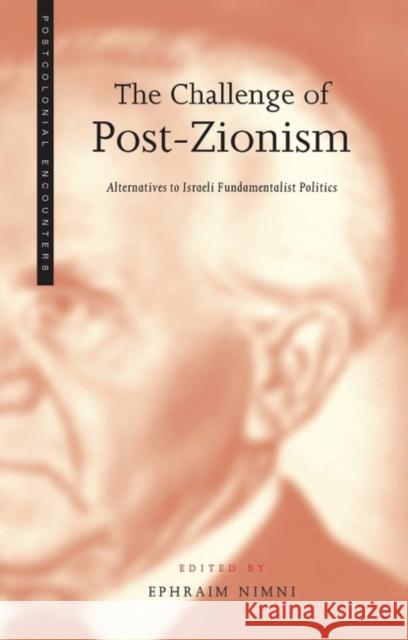The Challenge of Post-Zionism: Alternatives to Israeli Fundamentalist Politics » książka
The Challenge of Post-Zionism: Alternatives to Israeli Fundamentalist Politics
ISBN-13: 9781856498944 / Angielski / Miękka / 2003 / 224 str.
As an antidote the growing Israeli fundamentalism, in recent years a lively debate has developed in the Israeli media, intellectual circles and academia about the defining characteristics of Israel and the future. The argument, known as Post-Zionism, challenges some of the fundamental myths surrounding the early history and contemporary identity of the Israeli State. This argument is voiced by individuals and groups with different political agendas, but at the centre of the argument is the
desire to downplay the influence of Judaism in the definition of the state, and to move towards the idea that Israel should become a secular state of all its citizens. This argument has profound and radical implications for the Israeli-Palestinian conflict and for Israeli politics, for it implies an improvement in the status of the Arab citizens of Israel and downgrades the status of Jews who are not citizens of Israel.
This volume presents this emerging debate. Its contributors include some of its main protagonists, Israeli citizens of Jewish and Palestinian background, including A'sad Ghanem, Uri Ram and Ilan Pappe. They explore Post-Zionism's meanings, ambiguities and prospects. Other contributors place it in its political context as Israeli society seems to be reaching an ideological crossroads. They also put forward criticisms of post-Zionism, and explore its implications for 'out' groups, including Palestinians, Israeli women and Jewish people living outside Israel. The book concludes with a fascinating assessment by Edward Said of the implications of this debate for a reconciliation between Israelis and Palestinians.
The significance of this volume goes beyond Israel's own emerging post-colonial identity and contains implications for theories of the post-colonial state generally.











